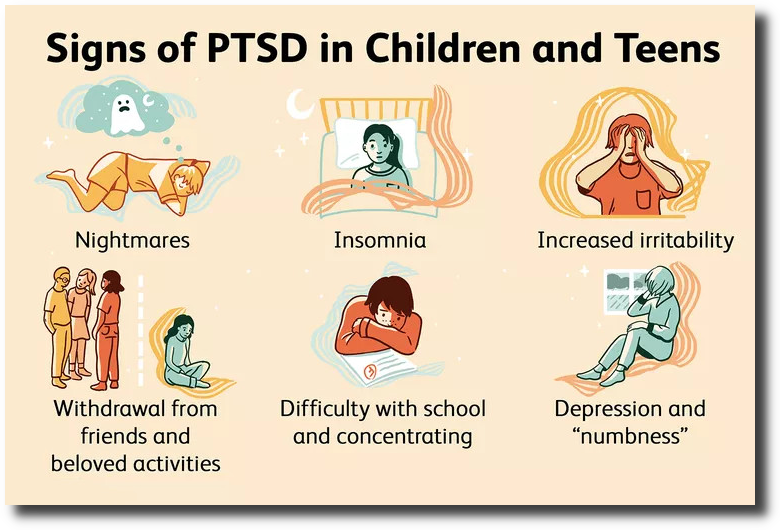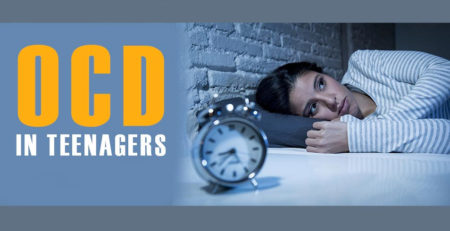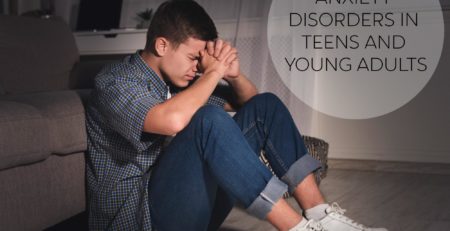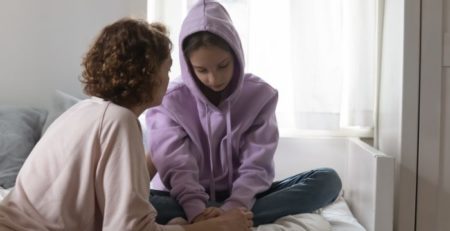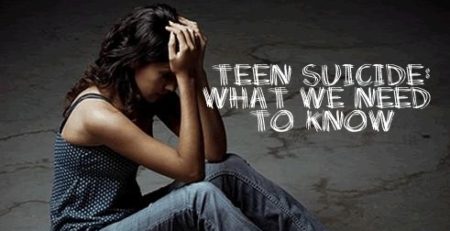PTSD: Signs and Treatment
The teenage years can be a whirlwind of emotion, but sometimes those feelings can intensify. It’s normal for teens to be moody. Still, if your teen is having difficulty in school or is showing signs of irritability or agitation, they may have developed Post-Traumatic Stress Disorder (PTSD). PTSD can manifest in different ways and include symptoms such as flashbacks, nightmares, emotional numbness, hypervigilance, and avoidance of trauma-related activities.
It’s important to note that everyone has their own unique experiences with PTSD and that no two stories will ever be the same. If you suspect your teen may have PTSD due to a traumatic event they’ve witnessed or experienced, seeking professional help is essential. A trained mental health provider will be able to properly diagnose and treat your teen’s disorder so that they can live an enjoyable life full of hope.
What is PTSD?
PTSD stands for post-traumatic stress disorder. A mental health condition can occur after someone experiences or witnesses a traumatic event. A traumatic event can be anything that causes psychological or physical harm, such as abuse, a natural disaster, or a car accident.
What are the symptoms of PTSD in teenagers?
The symptoms of PTSD can vary from person to person. Still, they typically fall into four main categories: re-experiencing the trauma, avoidance, negative changes in mood and thinking, and changes in physical and emotional reactions.
How common is PTSD in teenagers?
PTSD is relatively common in teenagers. It is estimated that 3-5% of teenagers will experience PTSD at some point.
Who is at risk for developing PTSD?
Several factors can increase the risk of developing PTSD, such as trauma history or exposure to multiple concussions. Additionally, teens who have experienced more severe or prolonged trauma are more likely to develop PTSD than those who have experienced less severe trauma.
How can PTSD be treated?
There are several effective treatments for PTSD, including cognitive behavioral therapy (CBT), medication, and eye movement desensitization and reprocessing (EMDR).
What are the long-term effects of PTSD?
Left untreated, PTSD can lead to several long-term problems, such as social isolation, substance abuse, depression, and anxiety. Additionally, people with untreated PTSD are at an increased risk for suicide.
How can I help a teenager with PTSD?
If you know a teenager who is struggling with PTSD, there are several things you can do to help them. First, it is essential to be supportive and understanding. You should also encourage them to seek professional help if they struggle to cope independently with their symptoms. Finally, you should provide them with information about resources that can help them, such as support groups or therapy programs. Call Today to Schedule your appointment at 816.819.5166 or Click to Schedule Online
How Common Is PTSD in Teenagers?
PTSD affects anyone exposed to any trauma, and teenagers are no exception. Studies estimate that 8% of teenagers from 13 to 18 struggle with PTSD compared to adults, whose calculated rate is slightly lower. Additionally, it appears that PTSD may be marginally higher in teens than adults. Girls are farther likely to experience PTSD at rates around 2-3 times higher than boys, making them the most vulnerable population amongst teens. However, with proper care and treatment, there is hope for the recovering struggling with this condition.
Here are some of the most common signs of PTSD in children and teenagers
Avoidance
One of the most common signs of PTSD in children and teenagers is avoidance. Children and teens with PTSD may avoid people, places, or activities that remind them of the traumatic event. For example, a child in a car accident may avoid getting in a car or refuse to go to school if it involves taking the bus.
Intrusive thoughts
Children and teenagers with PTSD may also experience intrusive thoughts, which are unwanted and often distressing thoughts about the traumatic event. These thoughts can come in the form of flashbacks, which are vivid memories of the possibility that feel as if they are happening again. Children and teens may also have nightmares about the event or obsessively think about what could have happened differently.
Changes in mood and behavior
PTSD can also cause changes in mood and behavior. Children and teens with PTSD may become withdrawn or isolate themselves from others. They may also exhibit angry outbursts, become more aggressive, or have difficulty concentrating. Additionally, PTSD can lead to changes in eating and sleeping habits and problems at school or work.
Feelings of guilt or shame
Children and teens with PTSD may also feel guilty or ashamed about what happened to them. They may feel like they could have done something to prevent the trauma or that they should have been able to protect themselves or others from harm. This can lead to feelings of worthlessness and low self-esteem.
Difficulty trusting others
PTSD can also make it difficult for children and teens to trust others. They may feel like they can’t rely on anyone to keep them safe or that no one understands what they’re going through. This can make it challenging to form close relationships with others.
A sense of helplessness or hopelessness
PTSD can leave children and teens feeling helpless and hopeless about their future. They may feel like there’s nothing they can do to change what happened or that the trauma will always impact their lives and can lead to depression, anxiety, and suicidal thoughts or behaviors.
 Treatment for teen PTSD is highly effective and often involves cognitive behavioral therapy (CBT), designed to help teens recognize and change unhealthy thought patterns, such as those related to the trauma. Additionally, exposure therapy may be helpful because it gradually introduces opportunities for teens to face the trauma without being overwhelmed. Finally, medication can offer relief from some of the more severe symptoms like anxiety or depression. With a combination of these therapies, teens can gain perspective on their experiences and begin the process of healing from their trauma. Call Today to Schedule your appointment at 816.819.5166 or Click to Schedule Online
Treatment for teen PTSD is highly effective and often involves cognitive behavioral therapy (CBT), designed to help teens recognize and change unhealthy thought patterns, such as those related to the trauma. Additionally, exposure therapy may be helpful because it gradually introduces opportunities for teens to face the trauma without being overwhelmed. Finally, medication can offer relief from some of the more severe symptoms like anxiety or depression. With a combination of these therapies, teens can gain perspective on their experiences and begin the process of healing from their trauma. Call Today to Schedule your appointment at 816.819.5166 or Click to Schedule Online
